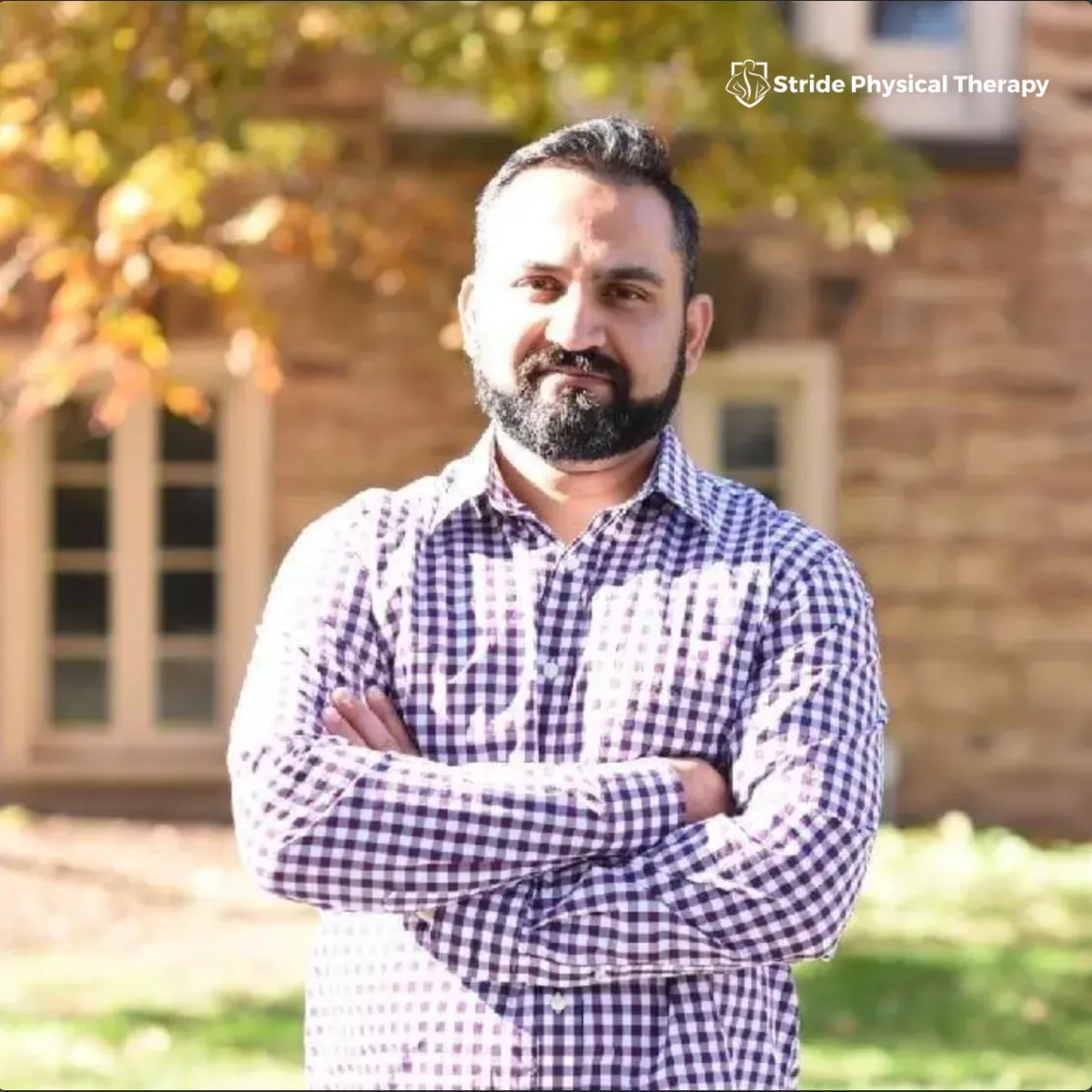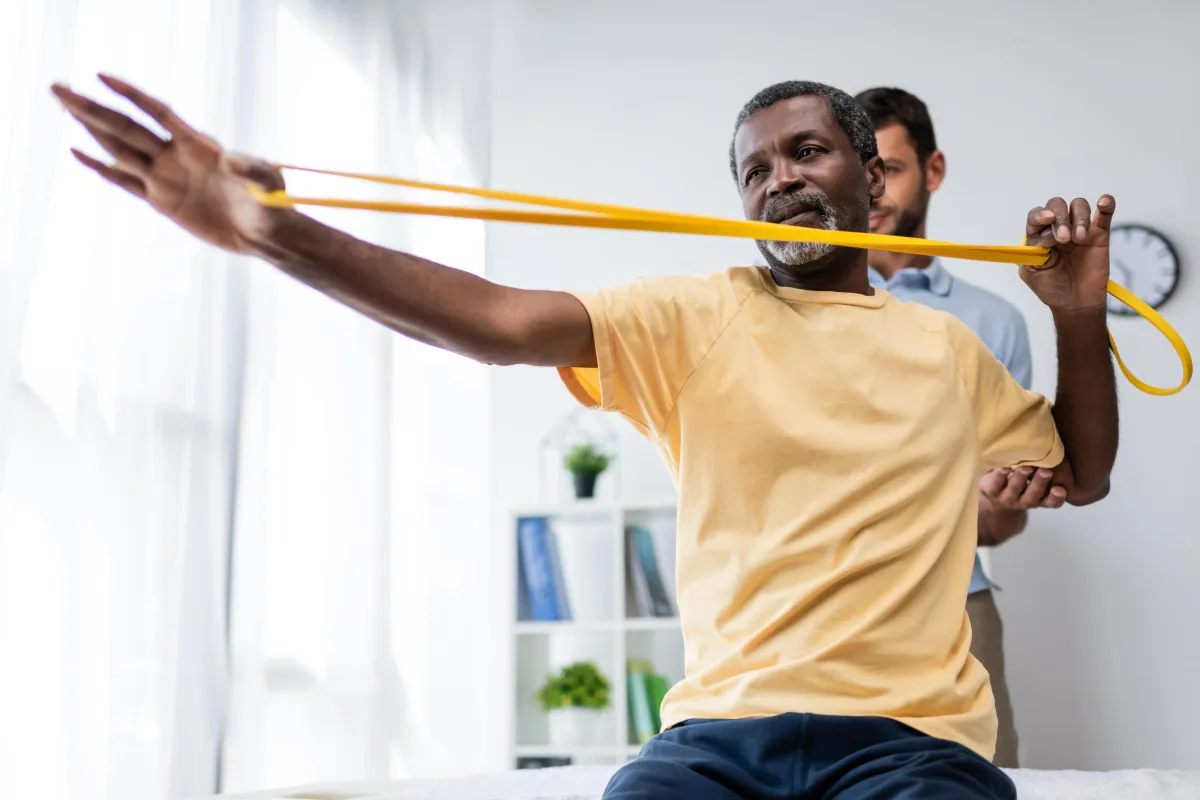Parkinson's disease makes everyday interactions challenging for those affected by this relentless condition that worsens over time. Our expert, board-certified neurologists and neurosurgeons, along with a specialized team in speech, occupational therapy, and nutrition, strive to enhance our patients' quality of life and autonomy. We are dedicated to guiding patients and their families every step of the way through their treatment journey.
Risk Factors for Parkinson’s Disease
Parkinson's disease arises from unknown origins, yet it may result from a mix of genetic aspects, like having relatives with the condition. It's more common in men and usually starts at age 60 or older. However, it can also occur before 40 in about 10% of instances.
Parkinson’s Disease Symptoms
Parkinson's disease symptoms vary from person to person; early signs might be subtle and overlooked. Initially, one might not swing their arms while walking or speak in a softer, mumbled tone. As Parkinson's progresses, since it's a disease that worsens with time, these symptoms will intensify.

Quick Links
FAQs
Signs and symptoms of Parkinson’s include:
1. Experience shakes and unintended shaking of arms, legs, and chin.
2. Feel muscle firmness and decelerated motions.
3. Notice a decrease in natural and reflexive movements.
4. Encounter balance issues and an unsteady gait.
5. Face feelings of depression and memory problems.
6. Observe alterations in speaking and writing abilities.
Parkinson's disease progresses in stages: mild, moderate, and advanced. Not everyone reaches the advanced stage. In the mild stage, symptoms are subtle and don’t interfere with daily activities, typically lasting 3-7 years. The moderate stage has noticeable effects, altering speech, making swallowing harder, increasing fall risk, and leading to small shuffling steps. In the advanced stage, treatments often don't work, and many require constant care, being confined to a bed or wheelchair.
Parkinson's disease develops through three stages: mild, moderate, and advanced, although not all patients experience the advanced phase. During the mild stage, which usually persists for 3-7 years, symptoms are minor and don't disrupt daily life. The moderate stage symptoms become more evident, affecting speech and swallowing, increasing the chance of falls, and causing small, shuffling steps. In the advanced stage, treatments tend to be ineffective and constant care may be necessary, often resulting in being bedridden or wheelchair-bound.
MEET YOUR RECOVERY TEAM

Kanwal Bhardwaj
PT, M.Sc.PT, CIMT, CMNT
Meet Kanwal Bhardwaj, PT, M.Sc.PT, CIMT, CMNT, the driving force behind Stride Physical Therapy in Freehold, NJ. With over 20 years of dedicated experience in the field, Kanwal brings a wealth of expertise and a passion for holistic healing to his practice. Kanwal's journey began with a Master of Science in Orthopedic Physical Therapy from Quinnipiac University in 2004. Over the years, he honed his skills and gained invaluable insights during 18 years of service in outpatient physical therapy offices. In 2014, fueled by a desire to deepen his understanding of patient care, he pursued a manual therapy certification (CIMT). This transformative experience allowed him to adopt a whole-body perspective, focusing on treating the root cause rather than just the symptoms...
At Stride Physical Therapy, we're dedicated to transforming lives. With a focus on the root cause of your condition, we're here to help you regain mobility and embrace an active lifestyle. What sets us apart? Our genuine passion for what we do. Let's stride towards a brighter tomorrow together.
Elevate Your Health with Our All-Inclusive Wellness Services!
Take one step closer to a pain-free life with Stride Physical Therapy! Discover medication and surgery-free solutions with our sessions.
Health Blog

Preparing for Surgery? Try Pre-hab to Speed up Your Recovery Process.
Getting ready for surgery? Understand that rehabilitation after surgery is key for a speedy recovery. It returns your movement and helps you stand on your feet again. Interestingly, rehabilitation before surgery, known as pre-hab, can also make your post-surgery recovery faster and even enhance the outcome of your surgery. Pre-hab means working with a physical therapist to prepare your body for surgery. Post-surgery, rehab takes over the healing process.
For a swift return to your daily life after surgery, consider Stript Physical Therapy in Freehold, NJ. Our dedicated team designs a personalized treatment plan to expedite your recovery and prepare you for your upcoming surgery.
Understanding Pre-hab vs. Rehab
Pre-hab: Participating in a pre-hab program with a physical therapist helps you get a head start on recovery and ensures a more successful surgery. Your therapist will prescribe exercises and therapeutic modalities to reduce inflammation and increase strength, giving your body an advantage as it heals from surgery. Even a few sessions can improve your overall health, so you have more strength to draw on post-surgery. Pre-hab prevents extreme weakness after surgery by building up your strength in advance.
Rehab: While pre-hab prepares your body for surgery, rehab focuses on strengthening your body afterward. Post-surgery pain and discomfort are natural, and certain motions may be challenging. However, it’s crucial to maintain movement to regain your range of motion and ensure a full recovery. Rehab helps you move safely, prevent reinjury, fight inflammation, and keep painful adhesions from forming. It also builds strength to help you quickly return to your routine.
What Results Can You Expect from Pre-hab?
Pre-hab dramatically helps people about to have surgery. Research from the Arthritis Foundation found that patients doing pre-hab recovered better after surgery and could leave the hospital sooner. Knee replacement patients who did pre-hab could walk and climb stairs well enough to be discharged from the hospital faster than those who skipped pre-hab.
Get a Jump Start on Your Recovery with Stride Physical Therapy
The health benefits of pre-hab are undeniable. If your surgery date is approaching, call Stride Physical Therapy in Freehold, NJ today to take advantage of our strengthening pre-hab services. Our team of dedicated movement experts will help you improve your strength before surgery, ensuring a smoother post-operative outcome and a faster recovery. Don’t face this journey alone—contact Stride Physical Therapy today to get the supportive, knowledgeable care you deserve.


